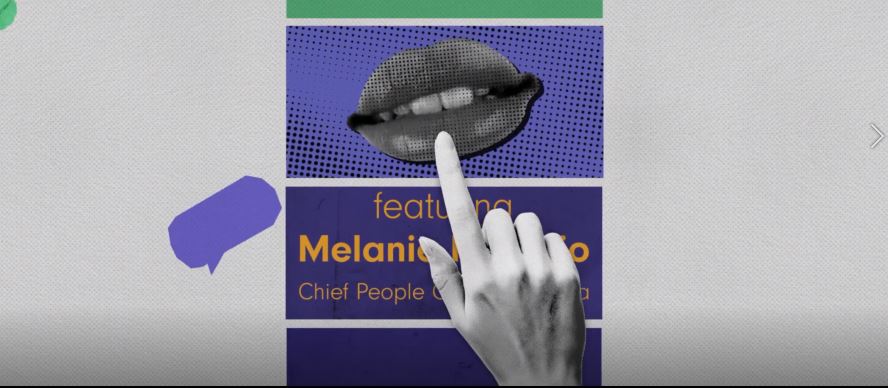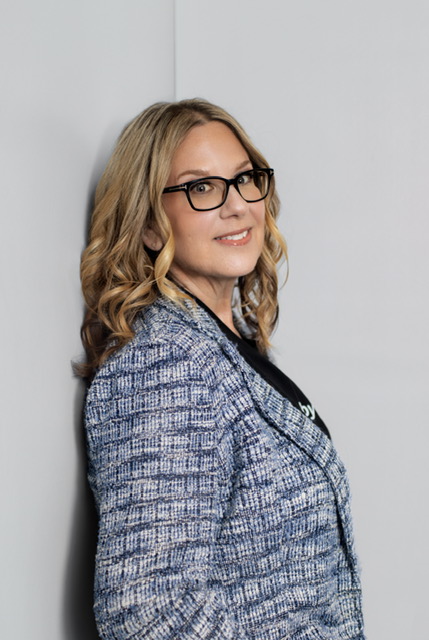HR 2030: Workplace Wellbeing Trends Transforming the Role of CHRO

HR 2030: Workplace Wellbeing Trends Transforming the Role of CHRO
As organizations confront economic uncertainty, cultural shifts, and rapidly evolving workforce expectations, workplace wellbeing has emerged as a defining lever of organizational performance. In this session, Unmind shared new HR 2030 research that looks beyond short-term trends to reveal how mental health, human sustainability, and employee experience will transform the role of HR leadership over the next decade.
Through a candid, future-focused conversation, the session explored how wellbeing is becoming a business function, what the next generation CHRO will be accountable for, and how people teams can design long-range transformation roadmaps that position HR as a strategic engine for growth.
Session Recap
A forward-thinking group of HR practitioners and wellbeing experts came together to surface actionable insights on the future of HR. The discussion centered on the shift from reactive wellbeing programs to embedded, enterprise-level wellbeing strategy — elevating mental health as a key business metric, personalizing support at scale, and redefining the CHRO as a strategist, not an operator.
Panelists shared practical frameworks for 1-, 3-, and 6-year transformation planning, explored how human-centric leadership will shape organizational culture, and offered clear examples of how wellbeing drives measurable outcomes. The tone was pragmatic and strategic: embed wellbeing into the employee journey, measure what leaders actually care about, and build executive alignment through clear ROI.
Key Insights from the Session
Wellbeing Is a Strategic Function — Not a Perk
Organizations that will succeed in 2030 treat wellbeing as a core pillar of business performance, embedding it into leadership, performance, and EX — not just benefits.
Three Trends Will Define the Next Decade of HR
1. Mental Health as a Core Metric
2. Personalization at Scale
3. Human-Centric Leadership
These trends signal a shift from transactional HR to strategic, human-centered leadership.
The Rise of the Strategic CHRO
Future CHROs will shape business strategy, influence the boardroom, and lead human sustainability agendas. Financial fluency, long-range vision, and EX mastery will be essential.
Roadmaps for Long-Term HR Transformation
Multi-year HR transformation plans move HR from reactive to proactive—embedding mental health, belonging, and performance enablement across the employee lifecycle.
The ROI of Wellbeing Must Be Connected to Business Outcomes
Turnover, engagement, performance, and manager effectiveness must be tied to wellbeing investments to secure executive buy-in and shift wellbeing into strategic focus.
Final Thoughts
Wellbeing becomes transformative when it is embedded, measurable, and connected to business value. Start with small, high-impact interventions (manager enablement, wellbeing KPIs, personalized support), measure outcomes that matter to executives, and leverage early wins to expand influence and investment.
CHROs must position wellbeing as a strategic driver of productivity, resilience, and culture — and equip managers and leaders with the skills to operationalize it daily. Keep strategies focused, people-centered, and aligned to long-term vision.
Program FAQs
1. How do we begin elevating wellbeing without major budget or headcount?
Start with lightweight initiatives: manager one-on-one templates that embed wellbeing check-ins, time-boxed pilots focused on mental health awareness, or simple listening mechanisms. Use existing communication channels and internal champions to build traction.
2. What governance helps keep wellbeing strategic and not program-heavy?
Use a simple, repeatable playbook: clear wellbeing objectives, a short activities calendar, one-page transformation milestones, and a basic measurement framework (sentiment + manager behaviors + business outcomes).
3. How do we measure the ROI of wellbeing?
Look beyond program participation. Track changes in turnover, engagement, psychological safety, manager effectiveness, and productivity signals — and map each metric to business costs and savings.
4. How do we personalize wellbeing support at scale?
Use modular resources, flexible learning paths, and self-assessments that guide employees to relevant tools. Leverage managers as amplifiers of individualized support.
5. How does the CHRO role change under HR 2030 trends?
CHROs must evolve into architects of organizational resilience. This includes financial fluency, data-driven decision making, long-term workforce planning, and shaping culture through wellbeing and EX strategy.
6. How can small or mid-sized organizations run effective wellbeing programs?
Use umbrella programs that address universal needs (stress, burnout, belonging), leverage peer org partnerships for shared learning, and focus on micro-interventions rather than heavy infrastructure.
7. How do we prepare managers to support wellbeing effectively?
Enable managers with practical tools: conversation guides, early-warning indicators, coaching question banks, and micro-learnings. Measure outcomes such as manager confidence and team sentiment shifts.
8. How do we embed wellbeing across the entire employee journey?
Map wellbeing touchpoints across onboarding, performance, leadership development, and transitions. Align them with EX, DEIB, and talent processes to create a unified, holistic experience.
9. How do we maintain momentum and avoid burnout in wellbeing initiatives?
Set clear expectations for program owners, provide recognition and visibility for contributors, and build a sustainable cadence that prioritizes outcomes over volume.
10. How do we secure executive sponsorship for wellbeing transformation?
Lead with business impact. Propose a pilot tied to clear metrics, identify a senior sponsor, forecast ROI, and use qualitative stories + quantitative data to influence broader adoption.
Thank you everyone for, for joining us today. I'm excited to run you through some of our latest research and provide some insights that hopefully give you some food for thought as you go on into your, your rest of your day's, weeks, and, and months. Um, as Sarah said, the best webinars have interaction, so please do get involved in the chat and interact with each other. Feel free to pop questions into the q and a, uh, and we'll do our best to get to them at the end of the conversation. So lemme go ahead and share my screen. I've got just something for a bit of a backdrop for us, um, as we go through. Um, Sarah, if you can gimme a thumbs up if you can see that. Perfect. Yes, we're good. Um, cool. So first off, a big thank you to the Unmined Science content and marketing team who pulled together this year's amazing report from the analysis to the design to the promotion. It's, it's been flawless as always. Um, as Sarah kindly introduced me, I am here representing un Mine today, and, and I have spent the best part of two decades in the global HR space, the last four of which have been here at Unmined, where we help organizations to cultivate positive mental health cultures, creating psychologically safe environments to promote high performance, which is paying forward something that I've benefited from in my career where I've been incredibly fortunate so far. So I'm gonna spend maybe 20 minutes or so running through some of the elements that I found most interesting from our Workplace Wellbeing Trends report this year. And then Sarah and I are gonna drop into a little bit of q and a and cover some of your questions and, and if she's got some for me as well, hopefully some easy ones from her. So, but this year's report, we're actually shifting our focus be, uh, beyond the immediate trends of 2024 to explore the landscape of HR and workplace wellbeing as we approach 2030. Um, we did this because in a world of constant change, we believe it's crucial to look beyond short-term fixes. Um, so those people leaders, organizations who can anticipate and prepare for the long-term challenges and opportunities will define the leadership of the next decade. We surveyed just over 3,600, so 3,625 HR decision makers in leading global organizations to provide a data-driven view of how workplace wellbeing will evolve over the next decade. Supplementing that we also spoke with subject matter experts, leading practitioners to get insights and tangible steps, um, that organizations can take to get ahead from now until 2030. Um, we boiled all of the valuable data and insights down into the three trends. Um, we also helped create strategies to become a strategic business partner and, um, kind of outline the HR transformation plans spanning from the 1 3 6 year timelines for your organization. If you haven't downloaded it yet, I I encourage you to do so. Uh, we'll also put a QR code up at the end of this next 20 minutes so that you can get straight to the site. All right, so trend number one, I, I guess it wouldn't be a trends webinar without talking about ai. Um, I don't think there is a trend webinar you will attend in the next year that doesn't cover ai. AI in the context of mental health is a really interesting one, and it is a topic that should be talked about with care and in a very intentional way. The headline for us here is that HR leaders are very much sold on hr, oh, sorry. HR leaders are very much sold on ai, the vast majority. So nine in 10 foresee significant impacts from AI by 2030 with a promise of streamlined workloads and more accessible mental healthcare. So our results show that 70% of HR leaders already have AI protocol plan or guidelines in place, which is fantastic. 89% of HR decision makers say AI will play an important role in the success of workplace mental health strategies by 2030. Now, there are a lots of, there's a lot of unknowns, there's a lot of scarce stories and speculation out there, but broadly, HR leaders are optimistic about the impact that AI will have. And 93% say it'll have some sort of positive effect on mental health at work, streamlining workloads, and making access to care more accessible and more affordable. So the general sentiment is good. However, there are concerns about the potential loss of human touch, and I think this is where it comes into a really important conversation around mental health and ai. There's also concerns around ethical implications and data privacy issues. It's safe to say that we're definitely on the cusp of a major transformation, much like when the internet first came onto the scene. And it's rapidly gonna change the way that we work. And advanced AI tools are certainly poised to revolutionize the way we live and work, but specifically in, in the realm of workplace mental health. And this is why it's so important to recognize these concerns that you see on the screen and make sure that these tools are actually used for good. I think it does need to be said as well that the importance of human connection remains paramount. AI should augment and not replace human interactions to drive genuine behavior change. And as AI streamlines traditional HR duties professionals will be liberated to focus more on people, which will hopefully foster closer relationships and cultivate truly, um, employee centered cultures. Um, I think workplace mental health technology, and probably still is in its early stages, right? And it's experienced a significant breakthrough, primarily due to the pandemic. In recent years, the surge in demand for virtual access to quality care, it really prompted a, a rapid adoption of technology, including apps, telehealth, crisis tech lines, to scale up access to mental health services. Now with the introduction of, um, second generation ai, I think we're poised for the next wave of innovation. And this shift ex the shift extends beyond mere accessibility to care. I think what it will do is enable seamless integration of mental health support into our daily routines through AI driven analytics and natural language interfaces. Workplace wellbeing solutions will become highly personalized and seamlessly integrate into our workflow. And the belief then is that they will enhance engagement with wellbeing initiatives. So imagine if you will hear an AI coach that is sat on top of a clinically validated and science backed database of mental health resources, and I can converse with it to ascertain the information that I may need at any given point in time, depending on how I'm feeling. I love this because it's the, the concept of improving navigation to mental health resources that are probably already available to me. But we often know how difficult it is to find things in my organization's HR policies, systems, tools, whatever it may be. But it also helps, I think, with the de-stigmatization or normalization of mental health conversation. The example here is, you know, somebody is saying, or Brittany saying that she's feeling wiped out. Brittany might not feel super comfortable telling her manager that she feels wiped out because of fear of what that could mean and what the implications could be. We want to move towards a world where Britney's manager would embrace that and they would look out for Britney and they would work together, but we're not necessarily there yet. So I think AI Pro produces a great opportunity for enhanced navigation, but also the normalization or the further normalization. Um, and it is unmined belief that the, by embracing AI responsibly alongside human empathy, we can create workplaces that are not only efficient, but also deeply supportive of employee wellbeing. We don't believe it's one or the other. They can be very, um, complimentary. So that's ai. I, um, I will pop into the chat if there are any questions, uh, in any, um, in a little while. But, um, that was trend number one. Trend number two. So Gen Alpha enters the workforce and your legacy shapes their success. So Gen Alpha are those born in 2010 onwards, so they will be entering the workplace in 2028, um, onwards, I guess depending on where that workplace is. And despite not yet working, we believe that this generation is poised to revolutionize the workplace. Now, there's always a caveat when talking about generations and the generalization of them in webcasts like this, but obviously every human is unique. But for the purpose of a trends webinar, we're gonna talk broadly about Gen Alpha. So hopefully you'll, you'll forgive me and gimme a little bit of leeway in that. Now, the HR leaders that we surveyed in our report, um, they anticipate that Gen Alpha will raise the bar when it comes to mental health support and wellness programs with 45% expressing this as their biggest expectation. I think this is one that we could probably all relate to in, in our personal lives. If we have, um, family members that are within Gen Alpha, there is a lot more of a willingness to talk about mental health compared to potentially when some of us were growing up. When I think about the focus on mental health within universities and colleges, there's a lot more support being put around students right now. So if I have the expectation of a student to have my mental health supported in a, in a meaningful way, why would I not take that into my workplace so close behind those expectations? 44% of respondents are expecting Gen Alpha to desire a more flexible and inclusive working culture. And that emphasizes the importance of work-life balance and diversity, equity and inclusion in the workplace. And it is wonderful to think that that's gonna continue to go on from strengths to strengths. Now, if you think about 2010 onwards, gen Alpha was born amidst significant social, economic and, and technological shifts. And Gen Alpha is expected to be the most tech savvy and socially conscious generation, yet their demands will extend beyond traditional wellbeing to encompass things like social impact, sustainability, and inclusivity. So their wants and needs from work will differ from previous generations, perhaps more than any other generation has differed to one that, that proceed to the one that precedes it in history. So any challenges that HR leaders foresee with Gen Alphas into the workforce, um, that's on this particular chart here. Now, these include an increased demand for digital skills and tech savvy coworkers, about 38% there. It's an emphasis on work-life balance and flexible work arrangements and a more socially conscious and environmentally responsible workforce. I think when you, you think about, um, where are we at now? Gen Z, gen Y, I think the demands for these kind of things have been growing and they've been requests that have been politely made. I think these are gonna become demands and non-negotiables as Gen Alpha enters the workforce. And there are gonna be several ways of working or structures that seem fairly antiquated to Gen Alpha, that if we wanna attract, retain, and engage the best talent in the future, that we're gonna see a change in those. Um, much like work from home was a huge shift from the traditional nine to five in the office. And I do know some companies are still pushing for that nine to five, five days a week in the office, but there's certainly been an increased level of flexibility there. I think it's safe to say as well, there is definitely a wellbeing revolution with Gen Alpha entering the workforce. So for Gen Alpha, they see wellbeing encompasses much more than just mental health and work-life balance. It extends to this social impact to neuro inclusion, sustainability, and climate action even. And employers must adapt their practices to meet these evolving expectations, including offering those flexible working arrangements, promoting de and i and prioritizing environmental social and governance or ESG initiatives. The ESG point is a, is a fascinating one I think as it relates to mental health. So what you will see on LinkedIn or in various different, um, business publications, media outlets, that organizations are, um, presenting their environmental scores or their carbon neutral targets. And these are very public and often these are demanded by certain governing institutions across the world. There isn't anything yet that dictates that we must report out on mental health of our workforce, but our prediction is that within the next two years, that's definitely gonna be the case and it's gonna fit in and have as much prominence within the ESG model as the environmental impact of an organization has. So I think that's one sub trend that we've seen coming. And as I'm gonna talk to in the, in the last trend, the ability to measure mental health within the workplace is a really trickle tricky one. Like, what is it that we're measuring leading indicators, lagging indicators, impact? So that's a, a really interesting conversation that's bubbling up. So I think when it comes to alpha, these are probably the three summary areas that I, I wanted to propose that you, you have a think about following this webcast. Um, the first is the emphasis on the humanistic leadership. So humanistic leadership will gain prominence as organizations strive to align to the, the gen alpha values that I've just run through. This includes fostering meaning and purpose at work, shifting from transactional tasks to addressing unseen problems and promoting creativity and innovation. Second is that demand for technological advancement. Gen alpha's, digitally native status necessitates tech-based solutions for things like mental health support, employee training, workplace workplace productivity. And we think that AI enabled tools, smart office solutions and tailored support will become essential for meeting their expectations. And I think what's important here is that this isn't just a demand that Gen Alpha has. It's something that will greatly enhance any generation of employee within the workplace. And then the last one will be adapting to the new workforce. So, and it kind of goes to that point I made earlier of the generalization of, of generations in terms of what they expect, what they need, what we should do, and there will be some that may resist Gen Alpha's anticipated demands. But we genuinely believe that organizations must adapt to remain competitive in that future workplace. And embracing innovation and meeting the expectations of new workforce will certainly lead to improved performance and success for all generations. I don't think there's been a, a story told about an organization in the past that have successfully not adapted to the new generation entering their workforce. Okay, so trend three and my final trend before we kind of open up for a bit more of a dialogue and a conversation, um, this is probably my favorite trend that the CHRO evolves and demonstrates impact on business outcomes. I think it's my favorite because it points to the CHRO as a change maker that can drive so much positive change across our workplaces and businesses in years to come. The evolving role of CHROs is set to significantly impact business outcomes as organizations grapple with the, the ramifications of, um, connecting mental health to business performance and today's workplace, um, is, uh, probably, I'd say unprecedented levels, but we're witnessing alarming rates of burnout and poor mental health despite the increased investment in wellbeing initiatives, the, the investment or the wellbeing workplace wellbeing industry, I don't know the exact figure, but it's into the billions in terms of the size of that market, yet we continue to see burnout and poor mental health and those metrics rise. And organizations are looking at that and thinking, well, I, you know, I give everyone the best individual tools that I've got. We've got apps, we've got text lines, we've got this, we've got that. But what organizations are realizing is that it's, there's a necessity of shifting from promoting constant hustle to fostering sustainable work practices. We need to take an organizational view of mental health in the workplace as opposed to the traditional individual reactive review review. So the first chart, or the first start there here that I wanna talk about was, despite recognizing the link themselves, as we can see with this chart, HR leaders in the in the study reported that only 35% of their C-suite leaders fully understood the link between mental health and performance. And burnout has become a pervasive issue reported by roughly 88% of those HR leaders. Now, despite the efforts to address mental health issues through training, 89% of HR leaders said that their organization's, managers and leaders have undergone specific workplace mental health training. But still 68% of organizations report witnessing an increase in mental health related attrition or absenteeism. What I think this highlights is the need for a more comprehensive approach tackling workplace mental health issues and mental health training alone is simply a bandaid. The next point I'd say would be around the imperative for accountability and transparency in, in business operations that HR leaders have. Um, now is that 94% of HR leaders are, are advocates for reporting on employee mental health as part of an ESG disclosure, as I mentioned before, I think that's quite a staggering figure in that it's not mandatory, it's not compulsory, but 94% of HR leaders believe it's something that that should be happening. I think where organizations then struggle is, well, how do we report it? What do we report? How do I get that information? And half the organizations that we pull are struggling to quantify the full extent of the financial impact of mental health in our business, be that poor or be that positive. Um, and I think embracing this concept of sustainable high performance CHROs will play a pivotal role in embedding wellbeing into those organizational ecosystems, um, by leveraging the data to demonstrate the impact of wellbeing strategies on business outcomes. I think when it comes to understanding how to get that point across, it's really important for HR leaders to understand what it is that they are trying to prove, what they're connecting to, and where they get the data to prove that. And part of that is understanding what does high performance look like in an organization? So we asked within our, within our study and HR leaders, um, they said, there's these elements here. So things like effective collaboration, teamwork, positive relationships, innovation, problem solving, adaptability, consistently producing high quality work. Now, what do all of these things have in common? I don't think any of these are possible without positive mental health or positive mental wellbeing, should I say? Um, I think it's fairly obvious that people up business up. So the key now is how do we show that link between what you do for your wellbeing at your organization and how that impacts the top and bottom lines for organizations so that our finance team do not do no longer question why we're investing in wellbeing solutions and initiatives. I think common sense suggests that we always should, but that link to business performance of business outcomes does not necessarily, um, it does not necessarily always become clear or apparent. Hey, Zach. Um, so as CHROs gain increased influence across the c-suite at what we think is that we're gonna see that shift from securing a seat at the table, um, which we've seen over the past few years to the CHRO becoming the truly trusted confidant of the CEO, because they have the credibility and expertise to drive the wellbeing agenda as a central pillar of organizational success, we think that in this landscape, future c HROs will have or will require, I guess a blend of analytics, business acumen and, and networking skills to navigate the complexities of the modern workplace. Um, and who knows, maybe they won't be called A-C-H-R-O in the future, uh, maybe in 2030. I think there's an argument here for the rise of, of the Chief performance Officer, and I'm all for that. Um, let me know in the chat if you agree with that. But I think we've moved from the personnel tactical administrative role of HR to the guardians of an employee employer culture, um, to thinking more proactively. And I think now it's about how do we foster and create a culture that helps our people perform to their greatest ability or greatest potential. Um, so maybe Chief Performance Officer is something that we're talking about in the future. So in summary, um, these were the three trends that I kind of just went through and a closing statement on each, I think. So AI makes us more human. I think as we navigate the obviously transformative impact of hr, of a, sorry, of AI on workplace mental health tech, it's imperative that we harness its potential to enhance human experiences and foster supportive work environments for Gen Alpha. We're preparing for the entry of Gen Alpha into the workforce, and it's crucial, again, to foster understanding, to collaboration and support across all generations in the workplace. By embracing that diversity and leveraging each of the generation's strengths, we can definitely work towards creating a more inclusive and innovative workplace for all. And then finally, the CHRO or CPO maybe in the future. I think this represents a pivotal opportunity to redefine organizational priorities and drive sustainable business outcomes. And by prioritizing employee wellbeing and demonstrating its impact on the bottom line. And the top line CHROs are gonna emerge as indispensable leaders in the modern workplace. So if you haven't already, here is a QR code to download the report. Um, throughout the present or throughout the report, you'll see numbers of images. Those were all created by AI and kind of the theme of one of our major trends within there. Some of them are very enjoyable, um, some of them are a bit weird, but it's a fantastic report. Again, kudos to the science and content teams within Unmined for creating such a wonderful report. Um, and Sarah, I think we're gonna move into a level of, uh, of q and a now. I'll check the chat. Apologies. Oh, no worries. I was definitely watching the chat. So thank you for walking us through all of these themes. Very broad topics, but they're all intricately interwoven. So I think let's start with the first trend, and let's talk a little bit about how we can balance AI with the human aspect. So in what ways can we integrate AI while still really remaining with that human touch? What does that look like, Matt? It's a, yeah, it's a great question. It's, um, it, it's probably the biggest fear, right? When, when you start talking about AI in the context of the workplace, it's AI is gonna replace what I do. And I think the CHRO is truly the guardian of how AI should be implemented into an organization. So there are gonna be instances where AI will reduce a level of administration by a human by X 90, 95%, right? And within that, let's say tech team that presents an opportunity to redistribute, um, headcount to more value add or potentially more strategic thinking roles. I don't think you can do that without consulting HR or having HR at the table to make sure it's being done in the best possible way. And what that in turn does is it puts HR in the conversation around performance again, and it in the conversation of, of business outcomes. And by putting HR in that environment, it's putting a very human impact or a human perspective on what decisions can be made. I also think that, um, we're far from, I dunno if, if I can't remember the name of the movie, but I watched it recently where, um, AI had taken human form, um, and it was kind of, uh, living its own life. Uh, we are far from that environment. I, I think, I hope, um, and I think that any level of AI implemented in an organization should be human led or at least controlled by human beings when it comes to mental health. Um, it's really important that we put AI on top of something that is scientifically validated, clinically backed, and created by human beings, because you do not want crowdsourcing AI crowdsourcing information and giving that to somebody who may be seeking a level of critical need. So I, I think suffice to say the chief HR needs to be the guardian of how AI is implemented in organizations. But I do think my point around navigation and normalization of the conversation is a wonderful place for AI to start. Because if you can have AI break down the barriers of someone talking about mental health and then direct them to the relevant therapists, psychologists, psychiatrists, then that's the wonderful blend of, of AI and humans working together to make sure that somebody gets the, the treatment that they need. Mm, I love that. And it's, it's almost ironic where we, before technology, we were very human-centric, and now we've launched all this technology and here we are full circle back, not just growing with technology, but also doubling down on that needed human aspect. And I just wanted to read a quote from the, from the report, which I loved so much, and maybe you can talk a little bit about it, but it states that before integrating AI driven monitoring and feedback solutions, organizations should prioritize and strengthen your human centric feed feedback processes first. So before we can really lean into the ai, we need to make sure that we are solid in, in our current human focus processes. So I don't know if you wanna speak a little bit about that, but that's something I've been thinking about. Yeah, It's a wonderful quote. And, and I think that the key thing that I take from that is AI is not gonna fix everything that you've neglected or is broken right now. Like, it's, it's not the silver, silver bullet. You need to ensure that you've got the right processes, procedures, culture in place, that you apply AI in the relevant places. And, um, that means that there's no shortcut to the implementation of ai. It means that it still needs that human input to create the kind of business that you want to. Um, but yeah, it's a really significant point. It's, it's not, it's not the answer to everything, right? Um, it needs to be mm-hmm. Delivered and, and integrated in the right way. Yeah. And kind of building on top of that, in the report it talked about this constant monetization of different behaviors through different tools and softwares and wearables. And I am just personally curious, are there any risks in this constant monetization? Is there any, um, perhaps negative impacts or positive impacts on that? Yeah, I, I think there's a couple of things. I think, um, one, you, we, we can never, I'm just writing it down so I don't forget to say it. There's the data privacy point, right? So mm-hmm, we probably not gonna go into that now because it would be a very boring topic to discuss on a, on a webinar. And no disrespect to the data privacy webinars that probably go on every day, but, um, we need to be very sensitive to where our data is and what data is being absorbed and what's happening with that data. So the, if you're gonna put in a level of monitoring, there needs to be a level of opt-in, and there needs to be absolute clarity in why that information is being used. And also, you don't need to, you don't need to monitor things that are unnecessary, right? I think it needs to be very clear to an individual what's being monitored. The other thing, and, and kind of for me, monitoring is just the automated version of doing surveys. And, you know, we, we have something like survey fatigue where it's like, oh, here we go, I'm answering another questionnaire and, and nothing's gonna happen. And all I do is answer questionnaires and surveys. I think that survey fatigue has often been mistaken for an action fatigue, because if I do a survey and something positive happens as a result of that, gimme 10 a day, I will do 10 surveys a day if something positive happens because of the input I give. I think the same goes for the monetization or monitoring of things. If I know what's being monitored and why, and as a result in a month's time, my work or my life gets incrementally better because of it, I'm all in. Right? And I think there's a fine line between that, right? That some people will forever be cynical or suspicious of the monitoring, but if you're clear on what it is that's being monitored, why it's being monitored, and you can, um, make visible the, the positive impact of that monitoring, then I think it's okay. Mm-Hmm. Yeah. And Jen Alpha and Gen Z, they are, they wanna know why. They wanna know the why behind things so that they can feel bought in and have context around everything. Um, so, so I love that we have a question in the q and a here by Leo, and Leo says, if the question isn't fit here today, no worries. Um, but his question or the question is, how can people with living experiences such as addiction and people who are in cover recovery assist CHROs to help employees who may be struggling? I think they can help them in such a huge way. And you know, there, there's people that have clinical experience, there's people that have educational experience, theoretical experience, learned, whatever it may be. Lived experience is one of the most valuable experiences or, um, I don't wanna say tool 'cause I don't wanna diminish the, the value of lived experience, but I think it's, it's an incredibly important asset within any organization. And if we think about it specifically within the HR space and to the example around addiction and recovery, everyone, you, you don't know what it's like until you've lived it. And if you're currently living it, you don't know what to expect next. And to have policies or culture or availability of solutions that have driven by the insights of someone that's been there is going to, is gonna enhance the, the, um, the recovery period or the support that that individual can get. And there are so many articles right now in the story of p uh, power of storytelling within the, the workplace and within the HR space in particular. And, and I, I think it stems from the same area, right? I wanna, I wanna hear what someone has experienced, and I wanna be able to relate to that person, and I'll take what I need from their story and I'll apply it to myself and, and mine. We, uh, if you go on our website, we have a section called Real Stories, and that was an initiative that we be, we started probably towards the middle of last year, where we always talk about we have a thousand hours of science backed content available. We have access to practitioners, therapists, counselors, whatever it may be. But to see the impact that that has on individuals and to see how someone applies that science or applies that level of treatment to their life, be it, um, dealing with grief, um, with burnout, with suicide ideation, or, you know, on the, on the opposite side or the, the, the positive side of mental wellbeing with how someone leveraged the coach to enhance their career, whatever it may be, it just brings so much more credibility to it if it's somebody that, that has lived that. And I think to Leo's question in particular, if A-C-H-R-O is not, um, tapping into that asset that they will not be able to create as fuller or as inclusive, um, program culture processes as they want. And, but my my final point on that, it reminds me of a conversation I had yesterday with a company. They created their wellbeing program based on the requests of an employee resource group, and the next employee resource group also had some specific requests, and then the next employee resource group, so the company had maybe 9, 10, 11 resource groups. But what's amazing is that if you think you build a, a wellbeing program from the ground up that way, it's truly taking into account the nuances of each individual employee group, be it parents, be it an employee group on disabilities, on neurodiversity, on Latinx, on, on being black within the workplace and being a single parent within the workplace, LGB BT q um, plus. And I thought that was fascinating because that, while it may be fairly labor intensive, it's a no stone unturned approach and it, it kind of goes a long way to creating a more relevant wellbeing benefits program culture than, than that generic wellbeing program that you can find. Definitely. Right? Yeah. Yeah. Uh, I love that, that individualized approach because it, mental wellbeing is not a one size fits all, right? Um, that can cause more damage than, than to not do that. So, um, speaking of that, I know that we, you touched on it a little bit earlier, and this is also in the report, you know, mental wellbeing training is, is simply just not enough for managers and CHROs. And so what is that next level is putting those leaders mental health first? And I'd be curious, what does that look like? What does it look like to put your mental health first in demonstrating that as a leader? Yeah, great question. I think the point around the bandaid is, is multifaceted in that, let's, uh, forgive me and generalize again, but if you think about the layer of manager training, it happens in the middle of the organization with the band of, of managers, maybe a level of senior leader, but above that you've got your executives and super senior leaders, and then below that you've got every employee. And the reason why it's just a bandaid is it's focusing on a third at most of the organization. And there's still got another third up here and another third down here, or maybe, you know, a larger proportion of employees and senior leadership. If there is no equilibrium or balance or a golden thread between the focus on mental health across all of those three groups, then the group and the minority is gonna fail. So if I'm a manager, but I'm just being forced to do manager training and I don't believe that my senior leadership has their best intent at heart, it's not gonna land with me. And if it's not landing with me, then I'm not gonna go away and deliver that and create psychologically safe environments for the team or for the people that I'm responsible for. So the point around the bandaid is it really requires an organizational approach in that senior leaders and, and the executives all the way to the CEO are bringing in the right level of expertise to help them think about the mental health culture of their organization, providing them with the necessary data and insights, and then arming senior leadership to kind of walk the talk so that then that next layer of management, if there is a hierarchical organization feel that, do you know what, I'm in a, I'm in a company and in a culture where this actually matters. It's not just like my compliance training or my data privacy training, which is a mandatory tick box. Um, so I think that's one of the key points around the manager piece, but it also leads into your point around, um, I always, I always get confused whether it's walk the walk or if you can actually talk the talk and then you walk the talk. But effectively, if, if an organization or as a manager layer, you're, you're talking about you should look after yourself and spotting signs of burnout, and it's all really important. You need to be able to do that yourself. Um, and you need to take stock of how you are feeling. And again, you can only do that if the people that are above you are supportive of that and understand the saying that you are being asked to understand. And then also from a peer perspective for that, that reliance. But yeah, the, the, the, um, analogy that's, that's probably overused now, but the yeah. Comparison with, um, airplanes, right? So you put your yes gone before you put someone else's on, but it's very true. Yes, exactly. Forever be true. Yeah, exactly. I was, I was just gonna share that analogy. Yeah, you can't help others if you don't help yourself first. So I also like the analogy of filling up your bucket first. You can't give from an empty bucket. And so yeah, need to make sure that we're taking care of ourselves holistically and showing up for our people. Um, it looks like we, we only had a couple questions come through, so we'll probably wrap up here, but you know, Matt, I would love to give you just like one last opportunity to like, share things that are, uh, top of mind for you. Any advice that you would give to the people on this call today that are, um, trying to tackle all of these areas? I would say the one biggest theme that is coming up or maybe more of a statement that we are seeing and, and we work with companies across the world and we're incredibly privileged and fortunate to do so within this space, you cannot improve what you don't measure. And it's, it's, that goes from someone trying to run a marathon, someone trying to lose weight, someone trying to learn a new language, someone like an individual level through to an organization trying to work out why am I wellbeing initiatives not reducing burnout. Now, the hardest thing at this stage is if you admit that you don't measure, so therefore that's why you're not improving. The hardest and first step is to then work out, well, what should I be measuring? And that's gonna be relatively unique to each company. But once you find that you can then start to tie that to business impact and business outcomes, and all of a sudden you're gonna have senior leadership lean in the finance team, lean in and say, well, what do you need to positively impact that? If you're gonna help save me money, or if you're gonna help my sales team achieve quota better? Now it's one piece jigsaw, right? You've gotta have product market fit, you're gonna have good operations, you've gotta have all of that kind of element as a business. But if your people are struggling, your business will fail. So let's learn what we need to measure so that we can improve it. Um, so measure, measure, measure. That would be my, my biggest theme at the minute.








.jpg)


